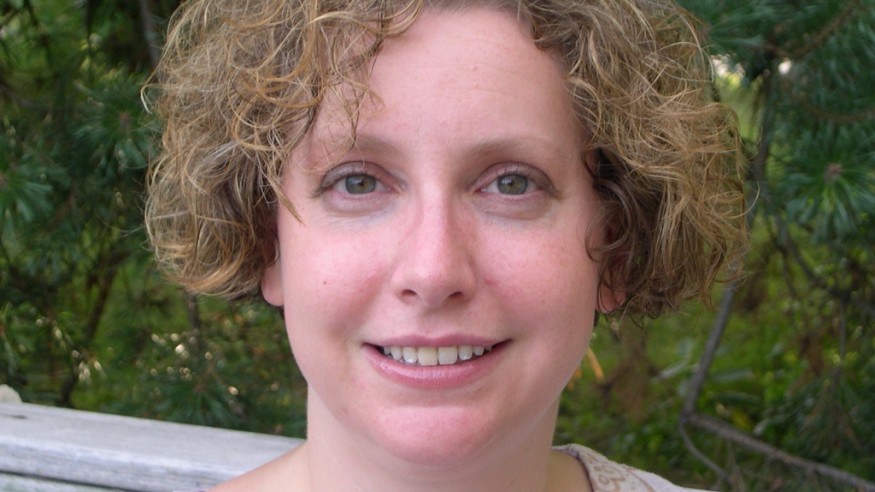
Ohio Wesleyan to Host Expert in Jewish Biblical Interpretation, Liturgy
Laura Lieber
DELAWARE, OHIO – Laura Lieber, Ph.D., associate professor for the Department of Religion, assistant director of Jewish Studies, and director of the Center for Late Ancient Studies at Duke University, will present, “Tragedy Tomorrow, Comedy Tonight: Scriptural Drama and Biblical Playfulness in Antiquity” at 7:30 p.m. March 28 in Benes Room B of Ohio Wesleyan University’s Hamilton-Williams Campus Center, 40 Rowland Ave. The event is free and open to the public.
Lieber received her Bachelor of Arts in English Literature from the University of Arkansas, rabbinic ordination from the Hebrew Union College-Jewish Institute of Religion in Cincinnati, and her doctorate in the History of Judaism from the University of Chicago. A specialist in the history of Jewish biblical interpretation and Jewish liturgy, Lieber’s primary area of study is Jewish liturgical poetry – called “piyyutim” in Hebrew, from the same Greek root of the English word “poetry.”
Lieber has published a number of articles that approach piyyutim from a variety of interdisciplinary perspectives, including performance theory, narratology, and as evidence for Jewish religious and cultural practices in Late Antiquity. She recently finished a book, “A Vocabulary of Desire: The Song of Songs in the Ancient Synagogue,” that explores the liturgical interpretation of the “Song of Songs” in Late Antiquity. These poems are among the earliest explications of the full text of the Song in existence and, most intriguingly, they incorporated the erotically charged language of the biblical Song into the prayers and rituals of the Jewish community.
Her first book, “Yannai on Genesis: An Invitation to Piyyut,” was published in 2010. This volume, described by one reviewer as causing “a tectonic shift in the field,” uses poetry by the Jewish poet Yannai (6th century, Galilee) to introduce Piyyut studies to a wide and interdisciplinary readership. Taking as its starting point the idea that liturgical poetry exists at the intersection of prayer, poetry, and biblical exegesis, this study illustrates how richly the piyyutim can inform our understanding of Jewish culture and society in the ancient world. In particular, this volume integrates these liturgical poems into areas such as midrash and even archaeology.
Lieber’s presentation is Ohio Wesleyan’s 2012 Merrick Lecture. The lecture series was founded by Frederick Merrick, a professor and former president of the university. Each year’s lecture discusses an aspect of “experimental and practical religion” and, over the course of the past century, has reflected the dynamic growth and change of the academic study of religion. Past lecturers have included Reinhold Niebuhr, Paul Tillich, Hazel Barnes, and Martin Marty. The Merrick Lecture is the university’s oldest running lecture series.
Learn more about Ohio Wesleyan’s Department of Religion at https://owu.dev.fastspot.com/academics/departments-programs/department-of-religion/.
Ohio Wesleyan University is one of the nation’s premier small, private universities, with more than 90 undergraduate majors, sequences, and courses of study, and 23 NCAA Division III varsity sports. Located in Delaware, Ohio, just minutes north of Ohio’s capital and largest city, Columbus, the university combines a globally focused curriculum with off-campus learning and leadership opportunities that translate classroom theory into real-world practice. OWU’s close-knit community of 1,850 students represents 47 states and 57 countries. Ohio Wesleyan was named to the 2010 President’s Higher Education Community Service Honor Roll with distinction, is featured in the book “Colleges That Change Lives,” and is included on the “best colleges” lists of U.S. News & World Report and The Princeton Review. Learn more at www.owu.edu.
